Project Information
Project Guide
Link to the Latest: Final Report
Background
Various impacting factors, such as economic growth, demographic trends, climate change, and technology advancement have driven the changes in the infrastructure sector at an unprecedented speed. Bridges are an integral and important part of transportation infrastructure systems and are inevitably being affected by these factors. As a delivery solution to build and repair bridges with reduced traffic disruption and increased safety, accelerated bridge construction (ABC) is confronted with many challenges imposed by these factors. In this project, critical impacting factors are defined as the factors that may be considered unproven, lacking refinement, relatively unknown, but have the potential to affect bridge design, construction, and maintenance (DCM) in the short- or long-term. Some examples of critical impacting factors include connected and autonomous vehicles (CAVs), electrical vehicles, passenger drones, extreme weather events, sea level rise, and E-commerce, etc. These factors are occurring and evolving at an ever-increasing pace, and there is a growing awareness that these changes will reshape the way that bridges are being designed, constructed, and maintained over the next decades. It is thus imperative to understand these factors and their impact on bridge DCM in order to better fulfill the vision of ABC in the context of future infrastructure system. However, there is a lack of understanding on how these changes will affect bridge DCM and/or ABC in both the near term and long term, due to two challenges: (1) the difficulty in predicting the trends of these factors – whether it is a long-term lasting force or a temporary phenomenon, and (2) the challenge in understanding the interplay between these factors and bridge DCM and/or ABC.
Objective:
The main objective of this project is to understand the trends of critical impacting factors and examine how these factors may impact the way that bridges are designed, constructed, and maintained.
Scope:
The following tasks will be performed to achieve the project objective:
- Task 1 – Identification of Potential Impacting Factors
- A broad set of preliminary impacting factors will be identified by conducting a comprehensive literature review to investigate research and conclusions pertaining to technological, environmental, social, and economic factors that affect bridge DCM and ABC.
- Task 2 – Understanding the Trends of Impacting Factors
- The data of the trends of these identified factors will be collected from secondary sources and analyzed.
- Task 3 – Identification and Analysis of Critical Impacting Factors
- A refined set of critical impacting factors will be identified by conducting expert interviews and surveys with bridge DCM and ABC stakeholders (e.g., FDOT engineers) to understand the impact of these factors on bridge DCM and ABC.
- Task 4 — Evaluation of Critical Impacting Factors
- The refined set of critical impacting factors will be evaluated through an expert panel that includes multi-sector experts (e.g., experts from academia, industry, and public agencies). The expert panel will be organized as a part of the 2019 International Accelerated Bridge Construction Conference.
- Task 5 – Recommendations
- Based on the analysis, a comprehensive list of recommendations will be developed for the transportation decision-makers and policymakers to consider in their short- and long-term planning of bridge projects and ABC in particular.
- Task 6 – Final report
- A final report that summarizes research findings from each task will be prepared and submitted to the ABC-UTC steering committee.
Research Team:
Principal Investigator: Dr. Lu Zhang
Co-Principal Investigator: Dr. Xuan Lv, Dr. Vamsi Sai Kalasapudi, Dr. Nipesh Pradhanang
Research Assistants: Sunil Dhakal, A.M.M Muhaimin
Previous Progress Reports:

